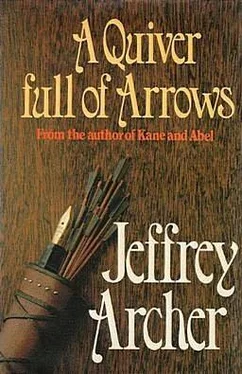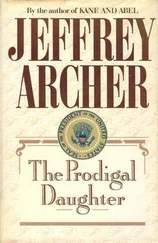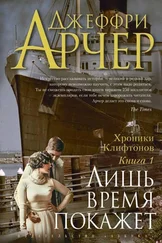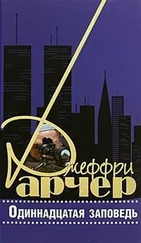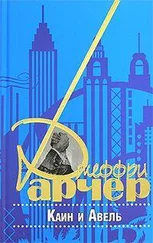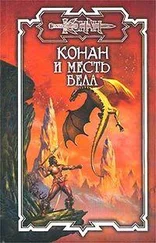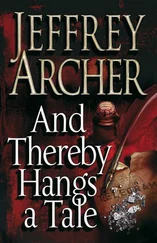The Grand Pasha, who ruled over ten thousand families, was of the opinion that in time there would be only five kings left in the world — the kings of spades, hearts, diamonds, clubs and England. With this conviction in mind, he decided that Henry should be educated by the British. The boy was therefore dispatched from his native Cairo at the age of eight to embark upon a formal education, young enough to retain only vague recollections of the noise, the heat and the dirt of his birthplace. Henry started his new life at the Dragon School, which the Grand Pasha’s advisers assured him was the finest preparatory school in the land. The boy left this establishment four years later, having developed a passionate love for the polo field and a thorough distaste for the classroom. He proceeded, with the minimum academic qualifications, to Eton, which the Pasha’s advisers assured him was the best school in Europe. He was gratified to learn the school had been founded by his favorite king. Henry spent five years at Eton, where he added squash, golf and tennis to his pastimes, and applied mathematics, jazz and cross-country running to his “avoid at all costs.”
On leaving school, he once again failed to make more than a passing impression on the examiners. Nevertheless, he was found a place at Balliol College, Oxford, which the Pasha’s advisers assured him was the greatest university in the world. Three years at Balliol added two more loves to his life: horses and women, and three more ineradicable aversions: politics, philosophy and economics.
At the end of his time in statu pupillari , he totally failed to impress the examiners and went down without a degree. His father, who considered young Henry’s two goals against Cambridge in the Varsity polo match a wholly satisfactory result of his university career, dispatched the boy on a journey round the world to complete his education. Henry enjoyed the experience, learning more on the race course at Longchamps and in the back streets of Benghazi than he ever had acquired from his formal upbringing in England.
The Grand Pasha would have been proud of the tall, sophisticated and handsome young man who returned to England a year later showing only the slightest trace of a foreign accent, if he hadn’t died before his beloved son reached Southampton. Henry, although broken-hearted, was certainly not broke, as his father had left him some twenty million in known assets, including a racing stud at Suffolk, a 100-foot yacht in Nice and a palace in Cairo. But by far the most important of his father’s bequests was the finest manservant in London, one Godfrey Barker. Barker could arrange or rearrange anything, at a moment’s notice.
Henry, for the lack of something better to do, settled himself into his father’s old suite at the Ritz, not troubling to read the situations vacant column in the London Times . Rather he embarked on a life of single-minded dedication to the pursuit of pleasure, the only career for which Eton, Oxford and inherited wealth had adequately equipped him. To do Henry justice, he had, despite a more than generous helping of charm and good looks, enough common sense to choose carefully those permitted to spend the unforgiving minute with him. He selected only old friends from school and university who, although they were without exception not as well born as he, weren’t the sorts of fellows who came begging for the loan of a fiver to cover a gambling debt.
Whenever Henry was asked what was the first love of his life, he was always hard pressed to choose between horses and women, and since he found it possible to spend the day with the one and the night with the other without causing any jealousy or recrimination, he never overtaxed himself with resolving the problem. Most of his horses were fine stallions, fast, sleek, velvet-skinned, with dark eyes and firm limbs; this would have adequately described most of his women, except that they were fillies. Henry fell in and out of love with every girl in the chorus line of the London Palladium, and when the affairs had come to an end, Barker saw to it that they always received some suitable memento to ensure that no scandal ensued. Henry also won every classic race on the English turf before he was thirty-five and Barker always seemed to know the right year to back his master.
Henry’s life quickly fell into a routine, never dull. One month was spent in Cairo going through the motions of attending to his business, three months in the south of France with the occasional excursion to Biarritz, and for the remaining eight months he resided at the Ritz. For the four months he was out of London his magnificent suite overlooking St. James’s Park remained unoccupied. History does not record whether Henry left the rooms empty because he disliked the thought of unknown persons splashing in the sunken marble bath or because he simply couldn’t be bothered with the fuss of signing in and out of the hotel twice a year. The Ritz management had never commented on the matter to his father; why should they with the son? This program fully accounted for Henry’s year except for the odd trip to Paris when some home counties girl came a little too close to the altar. Although almost every girl who met Henry wanted to marry him, a good many would have done so even if he had been penniless. However, Henry saw absolutely no reason to be faithful to one woman. “I have a hundred horses and a hundred male friends,” he would explain when asked. “Why should I confine myself to one female?” There seemed no immediate answer to Henry’s logic.
The story of Henry would have ended there had he continued life as destiny seemed content to allow, but even the Henrys of this world have the occasional hiccup.
As the years passed Henry grew into the habit of never planning ahead, since experience — and his able manservant, Barker — had always led him to believe that with vast wealth you could acquire anything you desired at the last minute, and cover any contingencies that arose later. However, even Barker couldn’t formulate a contingency plan in response to Mr. Chamberlain’s statement of September 3, 1939, that the British people were at war with Germany. Henry felt it inconsiderate of Chamberlain to have declared war so soon after Wimbledon and the Oaks, and even more inconsiderate of the Home Office to advise him a few months later that Barker must stop serving the Grand Pasha and, until further notice, serve His Majesty the King instead.
What could poor Henry do? Now in his fortieth year, he was not used to living anywhere other than the Ritz, and the Germans who had caused Wimbledon to be canceled were also occupying the George Cinq in Paris and the Negresco in Nice. As the weeks passed and daily an invasion seemed more certain, Henry came to the distasteful conclusion that he would have to return to a neutral Cairo until the British had won the war. It never crossed Henry’s mind, even for one moment, that the British might lose. After all, they had won the First World War and therefore they must win the Second. “History repeats itself” was about the only piece of wisdom he recalled clearly from three years of tutorials at Oxford.
Henry summoned the manager of the Ritz and told him that his suite was to be left unoccupied until he returned. He paid one year in advance, which he felt was more than enough time to take care of upstarts like Herr Hitler, and set off for Cairo. The manager was heard to remark later that the Grand Pasha’s departure for Egypt was most ironic; he was, after all, more British than the British.
Henry spent a year at his palace in Cairo until he found he could bear his fellow countrymen no longer, so he removed himself to New York only just before it would have been possible for him to come face to face with Rommel. Once in New York, Henry bivouacked in the Pierre Hotel on Fifth Avenue, selected an American manservant called Eugene and waited for Mr. Churchill to finish the war. As if to prove his continuing support for the British, on the first of January every year he forwarded a check to the Ritz to cover the cost of his rooms for the next twelve months.
Читать дальше
